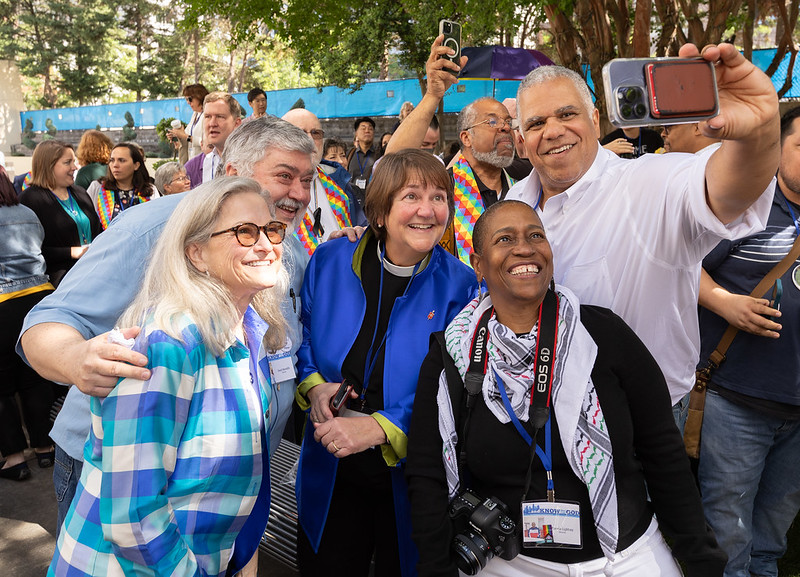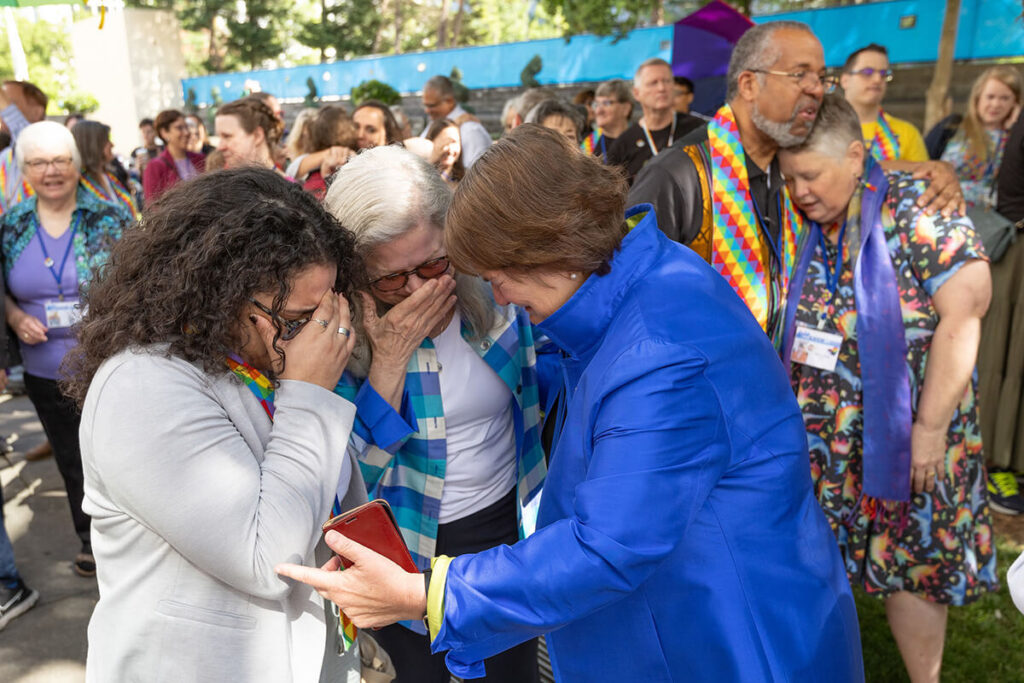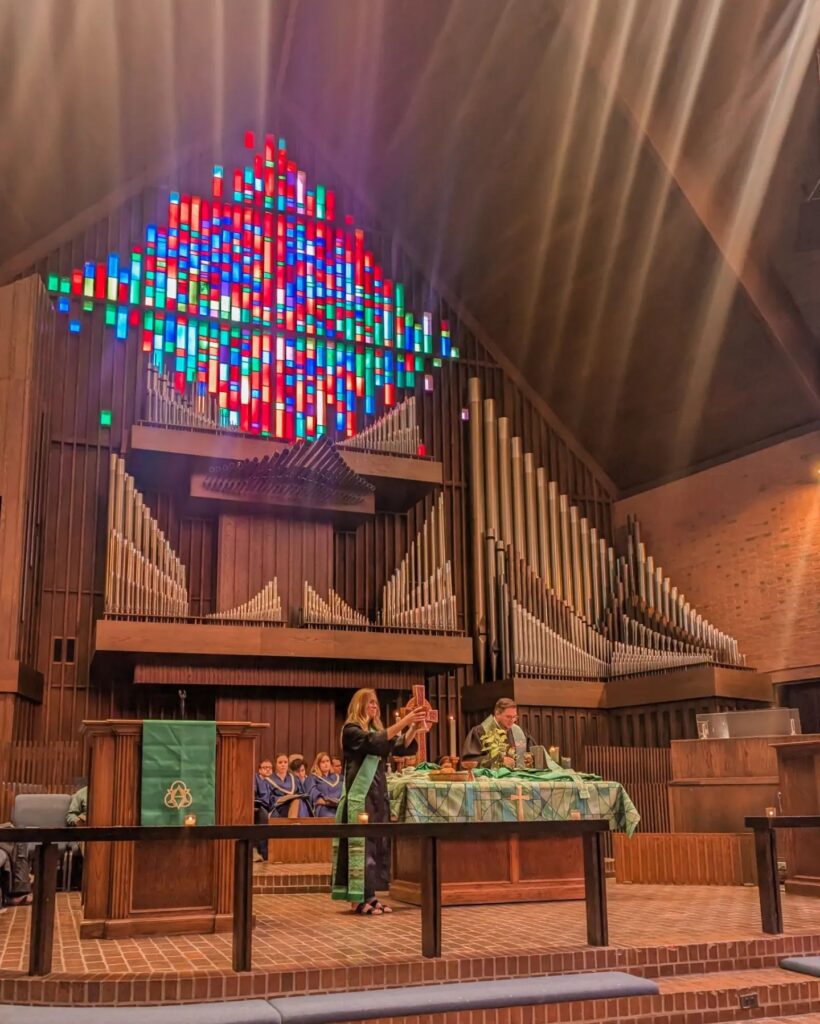
To be included or not to be included—that is the question. The United Methodist Church asked and answered this question at its most recent General Conference, which takes place every four years. The congregation gathered in Charlotte, North Carolina, from April 23 to May 3 earlier this year to discuss matters involving the LGBTQIA+ community being represented in their sect.
Divisiveness and disaffiliation of churches have loomed over the UMC for years. Through an unprecedented decision, the church hopes inclusivity brings along a new era to the congregation.
The UMC Book of Discipline underwent significant historical changes during the conference. Delegates and members of the Methodist Church worked during many hours of voting, discussion, and debate.
The Oklahoma Conference of the United Methodist Church preceded the General Conference in Charlotte. Seven lay delegates and seven clergy members were elected to represent the Oklahoma conference in North Carolina. With Oklahoma City University being a Methodist institution, the occurrences at these conferences significantly impact OCU.
Converging in Charlotte
What exactly occurred at the conference in Charlotte? The church decided to remove any restrictive language on the ordination of ‘self-avowed practicing homosexuals.’ Additionally, the UMC decided to remove Paragraph 2553 from the Book of Discipline– this section was added in 1972, allowing particular circumstances for churches to disaffiliate.
Conversely, the clergy and delegates added verbiage requiring District Superintendents not to penalize clergy or churches that choose to perform or not perform same-sex marriage services. This protection was paired with another stipulation added to the Book of Discipline. Various annual conferences now choose their process for handling churches wanting to rejoin after disaffiliating.

In short, unity in the church is exemplified in their decision to remove the restrictive language prohibiting any queer person from becoming a clergy member. A worldwide body of delegates voted with 692 yesses and 51 nos, signaling their shared vision for the congregation moving forward.
Chiefly, the church seeks to break away from the divisive and painful era of disaffiliation. Autonomy is essential for the church, allowing its churches to follow their conscience while choosing policies. There is no mandate, and the Oklahoma Annual Conference leadership will oversee the framework for churches to use.
The mission of United Methodists globally is clear. Let the issue of biblical interpretation and the period of divisiveness pass. There is a greater mission to re-focus on, Bishop Jimmy Nune summarizes– “Loving God, loving others and making a difference in our world, thereby making disciples of Jesus Christ for the transformation of the world.”
The Impact on OCU’s Religious Life
Decisions made by the church leadership at conferences drastically affect OCU’s religious life. One positive effect is that the Wesley Center’s on-campus membership has noticeably grown.
The Wesley Center’s motto is, “We have open hearts, minds, and doors.”
Reverend Aly Shahan, Director of University Church Relationships and Religious Life, states, “Attendance at chapel has doubled from last year, and attendance has increased since the decision… see an increase in the younger generation.” Students are more comfortable attending or leading worship services than before. The doors are now open for groups of potential future clergy members, and the worship space feels even safer and more welcoming since the UMC conference.
KC Curry, Assistant Director of Religious Life, told The Campus, “You can already see it, there was an immediate confidence shine. Now, those members can embrace their call.” Some students were only being held back by that one inclusivity barrier from becoming clergy members. There is a sense of peace for those previously unable to join the clergy.

“Humans can no longer get in the way of what God called someone to be or stop them from achieving that calling,” added Curry, recalling an interaction with an OCU student.
The message from the Religious Life team is that the church gained endurance and learned insightful things– “the world got to see the church be human,” said Curry.
Wesley Center’s doors are open to all who walk through them, Shahan states, “We hope people recognize that there are people who protect in the name of God.” The center holds its weekly worship service at 7 p.m. each Monday. For more information on events, service news, or opportunities, visit the Religious Life handle @ocureligiouslife.


Leave a Reply